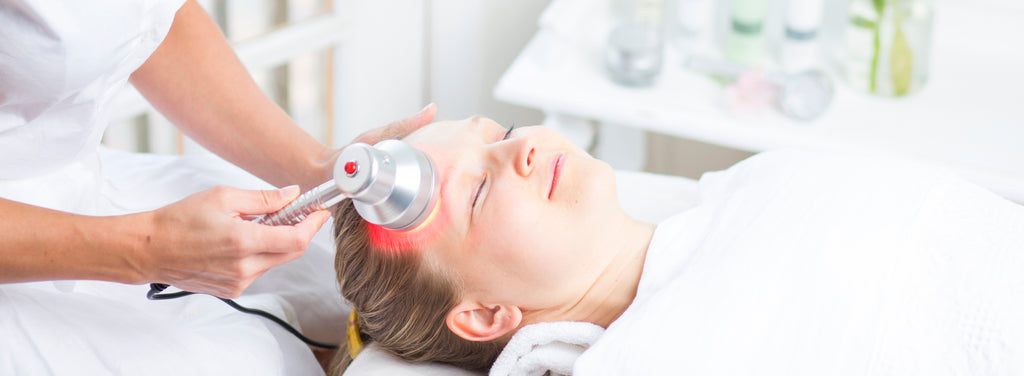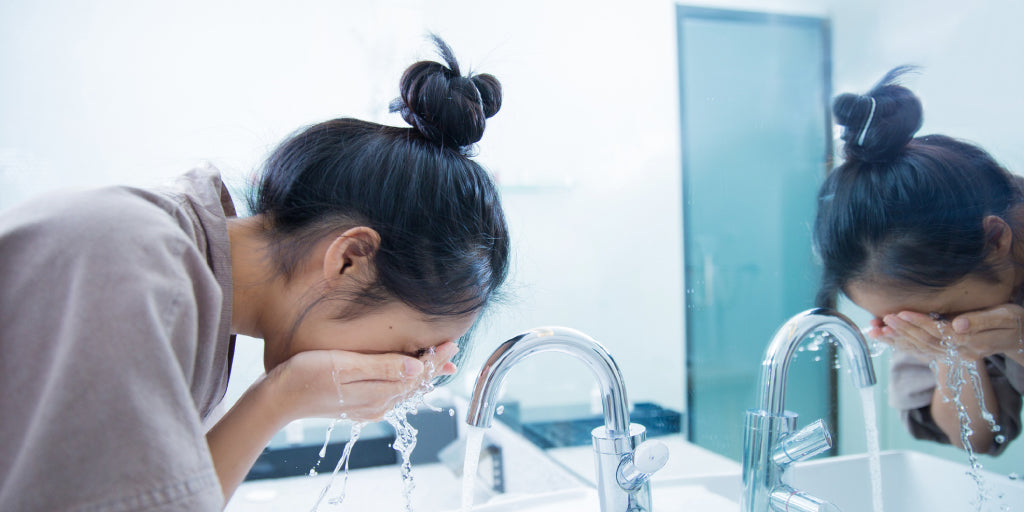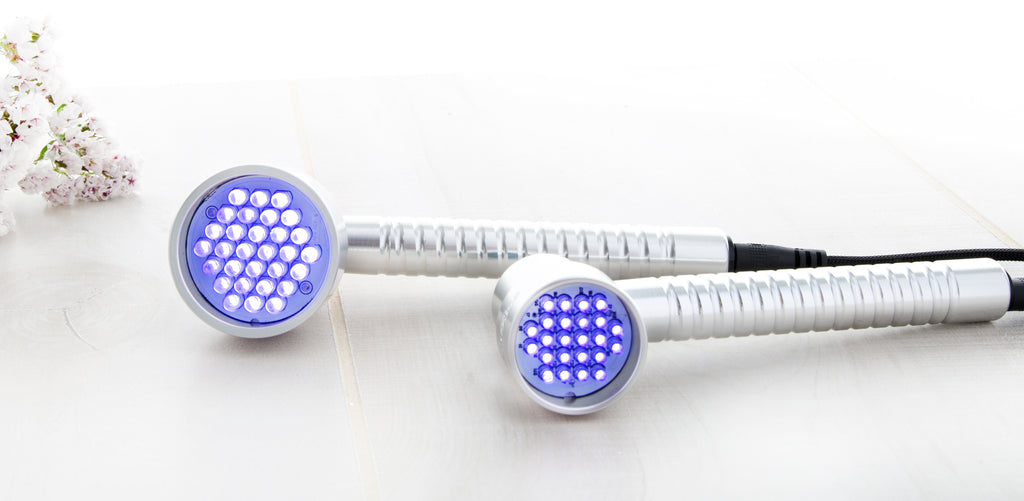If you Google “skincare advice,” you'll find tips on everything from avoiding wrinkles to getting rid of acne. Most of it looks pretty convincing and it can be hard to find the real truth.
If you want to tell fact from fiction, go to the science. Here are 7 common skincare myths and facts and the data that either supports or debunks them.
#1: Too Much Sugar Can Age Your Skin Faster

Fact. Sugar consumption doesn't have as dramatic an effect on skin aging as some other factors, such as genetics or sun exposure, but it can speed the aging process. Sugar damages the fibers that give skin its elasticity and this leads to more wrinkles and saggier skin. [1]
SUGAR AND THE AGE-ing PROCESS
Eating too much sugar can actually jump-start a process that makes you look older. These foods lead to a blood sugar spike that causes the production of compounds known as advanced glycation end products, or AGE's. As a person gets older, AGE's build up in the body and accelerate the effects of aging. [2]
#2: Beauty Sleep Works

Fact. Observational data has shown that people who get plenty of rest report having fewer wrinkles, less acne, and better overall skin tone.
During non-REM sleep, your body releases anti-inflammatory cytokines that reduce damage from pollution, sun exposure, and other sources.
Sleep is also the body's time to release optimizing growth hormone, known as the “Fountain of Youth” hormone. This hormone keeps skin from thinning so that a person actually does look younger. [3]
#3: Exposure To Red Light Can Reduce Wrinkles

Fact. Yes, this one does sound a bit like science fiction. There's a reason for that – NASA has actually used light therapy to help astronauts' wounds heal faster. [4]
Here's the science. Red and infrared wavelengths used in QuasarMD anti-aging devices penetrate up to an inch into the surface tissue. There, they stimulate the cells responsible for producing fibers that protect skin's elasticity and smoothness. This helps to keep skin looking younger. [5]
#4: Sunscreen and Moisturizer Can Keep Skin Looking Younger

Fact. Moisturizer keeps the skin hydrated, which directly helps to prevent the development of wrinkles. A 2010 study published in the British Journal of Dermatology showed that a 28-year-old woman with dry skin will have 52 percent more wrinkles by the age of 36. If the same woman hydrates her skin well, however, she will probably only see a 22 percent increase in wrinkling.
According to lead study author Dr. Greg Illebrand, a principal scientist for Olay: “We can dramatically delay the onset of persistent wrinkles by protecting skin daily with an effective moisturizer and sunscreen.” [6]
DON'T MISS A DAY
“Daily” is an important word if you're looking to develop fewer wrinkles and this applies to both moisturizer and sunblock. So many of us spend our days indoors, thinking that means we don't need sun protection, but natural light finds a way to reach you. You probably spend at least part of your day near a glass window, whether that window is in your car, your home, or your office, and that means you still need protection. Glass doesn't block UVA rays, which are responsible for wrinkles and other signs of aging. [7]
INCLUDE ANTIOXIDANTS
The oxidative process is a key driver of skin damage from UVA rays. Fortunately, according to research published in the journal Current Problems in Dermatology, topically applied antioxidants can significantly increase the skin's ability to protect itself from this damage. Study authors believe that antioxidants are particularly effective in sunblock because they increase the anti-aging capability of the product. [8]
#5: Greasy Food Causes Acne

Myth. Although 51 percent of people in the US believe that eating too much fried food leads to acne, research has not supported the connection. The American Academy of Dermatology, the US Food and Drug Administration (FDA), and the Mayo Clinic have all issued statements saying that there is not enough evidence to suggest that you will get acne if you indulge in burgers and fries. [9]
EATING FOR CLEAR SKIN
Greasy food doesn't cause acne, but there are some foods that actively help your body to fight breakouts. Omega-3 fatty acids, found in fish and fish oils as well as nuts, seeds, and plant oils, can reduce the inflammation that is the root process behind breakouts. [10] Ginger and turmeric, available as seasonings and as components of healing teas, can have the same effect.
BE KIND TO YOUR LIVER
The liver handles all detoxification in the body. This includes getting rid of unnecessary hormones, which can contribute to breakouts. If you want to help it do its job well, eat a lot of dark green leafy vegetables and brassica varieties, such as broccoli and cabbage. High fiber foods, such as whole grains, beans, and fresh produce, can also help the liver work at its best. [11]
#6: Cleaner Skin Is Clearer Skin

Myth. Many people wash their faces frequently thinking that doing so will keep breakouts at bay, when in fact the opposite is true. Skin that is prone to acne is also particularly sensitive. Scrubbing it repetitively, particularly with harsh products, is only going to irritate it and dry it out. This can actually make acne look worse. Twice a day with a gentle cleanser is much more effective. [12]
#7: Blue Light Can Treat Acne

Fact. This is another one that sounds too futuristic to be true. Washing your face doesn't help, but going under a blue light can?
Actually, yes. Blue light used in QuasarMD acne devices kills the bacteria that causes acne, which means that it can either treat an existing outbreak or reduce bacteria levels before pimples develop. In surveys of patients who tried blue light therapies, up to 90 percent of participants saw an improvement in acne symptoms. [13]
The Take-Away
Some of the information out there is true; some isn't. Don't be afraid to do your own research and find out what the experts have to say. Sooner or later, your skin will thank you for it.
SOURCES
[1] https://www.drweil.com/health-wellness/body-mind-spirit/hair-skin-nails/does-sugar-cause-wrinkles/[2] http://www.todaysdietitian.com/newarchives/030314p10.shtml
[3] https://www.nbcnews.com/better/health/why-beauty-sleep-real-according-doctors-ncna895801
[4] https://babyquasar.com/pages/light-science
[5] https://www.ncbi.nlm.nih.gov/pmc/articles/PMC2687728/
[6] https://www.dailymail.co.uk/femail/beauty/article-1284498/Back-basics-Nothing-keeps-wrinkles-bay-better-moisturiser.html
[7] https://www.keckmedicine.org/myth-or-fact-you-dont-need-sunscreen-if-you-are-indoors-all-day/
[8] https://www.ncbi.nlm.nih.gov/pubmed/11225195
[9] http://www.yalescientific.org/2011/11/does-greasy-food-cause-acne/
[10] https://ods.od.nih.gov/factsheets/Omega3FattyAcids-Consumer/">https://ods.od.nih.gov/factsheets/Omega3FattyAcids-Consumer/
[11] https://www.mybeautyandgo.co.uk/clear-skin-diet/
[12] https://www.sharecare.com/health/acne-skin-pimples/is-acne-caused-dirty-skin
[13] https://www.medicalnewstoday.com/articles/319254.php

